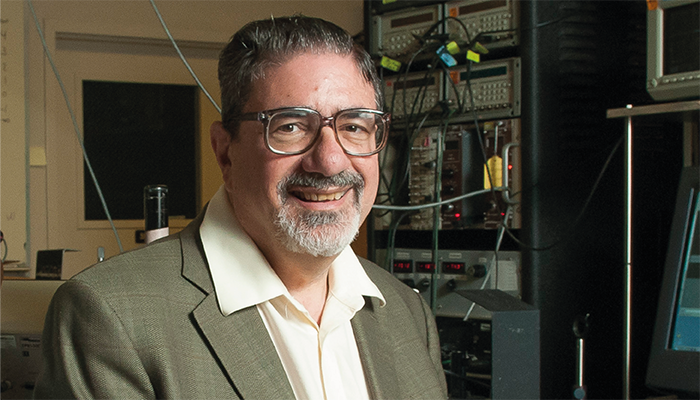Analytical science has a reputation problem. It goes back to the 1960’s when many top universities dropped analytical chemistry as a subdiscipline, with Harvard and Yale leading the way. Back then, it seemed that analytical chemists were just using existing machines to make some type of measurement – very much tied up with titration. It has not been restored, and the problem persists.
Broadly speaking, the problem is that analytical chemists tend to talk only to analytical chemists. We need to be much more inclusive. In fact, even among analytical chemists, there are subgroups arguing amongst themselves about whether mass spectrometry is better than NMR, or vice versa, for example. These are useless arguments: we know that both have advantages and disadvantages. What’s missing is a big picture of chemistry as a whole.
I think chemistry involves three or four “Ms”: making, modeling, and measuring; and, if you include chemical engineering, you can add manufacturing. Analytical chemists, of course, do the measuring – there's very little we understand without doing measurements! And if we were to tie ourselves much more closely to measurement, as a fundamental part of the chemistry field, we would regain our standing within the chemistry community.
Really, measurement is fundamental to everything we believe to be true in science more broadly. When we make things, we need to characterize what we’re making, which always involves measurement. If we model things, the models have to be compared with what we actually observe. How do we observe? We make measurements.
We have divided ourselves up into various buckets: physical science, physical chemistry, analytical chemistry, organic or inorganic chemistry, and so on. I like the idea of chemistry. I like the idea of science even more. We’re stuck with the same demarcations and boundaries given to us by history. This really limits our thinking and prevents us from innovating.
In fact, many of the advances we’re going to see in the future will involve combining – or dissolving – what are now considered traditional disciplines. Scientists who silo themselves aren’t going to be very successful. My hope is that, as interdisciplinary breakthroughs render the traditional labels irrelevant for the modern age, measurement will become more prominent. Again, what are instrument makers doing, fundamentally? They're making instruments to measure things. And if you develop a new way to measure something, you open up a new world. We’ve seen it time and time again.
There have been some conferences in recent years that have focused on specific problems, rather than subdisciplines, and have invited scientists from different disciplines to come together, which is a good idea. We need more scientists working collaboratively, interacting with each other, and understanding exactly what it is we need to model and measure. Perhaps we could invite people who aren’t “traditional” analytical chemists, but have a connection with measurement.
Let’s take an example. Understanding the brain is going to be one of the biggest challenges for science this century. Measurement will undoubtedly play an important role here. But what do we need to measure? What are the problems that need solving? Someone like Xiaowei Zhuang, Professor at Harvard University, comes to mind. Zhuang is illuminating neurobiology with super-resolution and single-molecule imaging; and while she has a physics background, and might not call herself an analytical chemist, she’s doing measurement science! Perhaps we’d have more scientists like Zhuang if science curriculums weren’t so strictly divided into biology, physics, and chemistry; and a chemistry curriculum that doesn’t place much emphasis on measurement.
This message needs to be received by other chemists, particularly those who are influential. We could make some real headway if leading organic and inorganic chemists helped reemphasize the importance of measurement – of analytical chemistry – in their discipline.
I know I’m swimming upstream. But I believe this is a fight worth having. If we want change, that’s what we’re going to have to do. We need to redefine chemistry so that it incorporates measurement; and we need to redefine analytical chemistry so that it is understood as the science of measurement – this is what we are and what we do.





